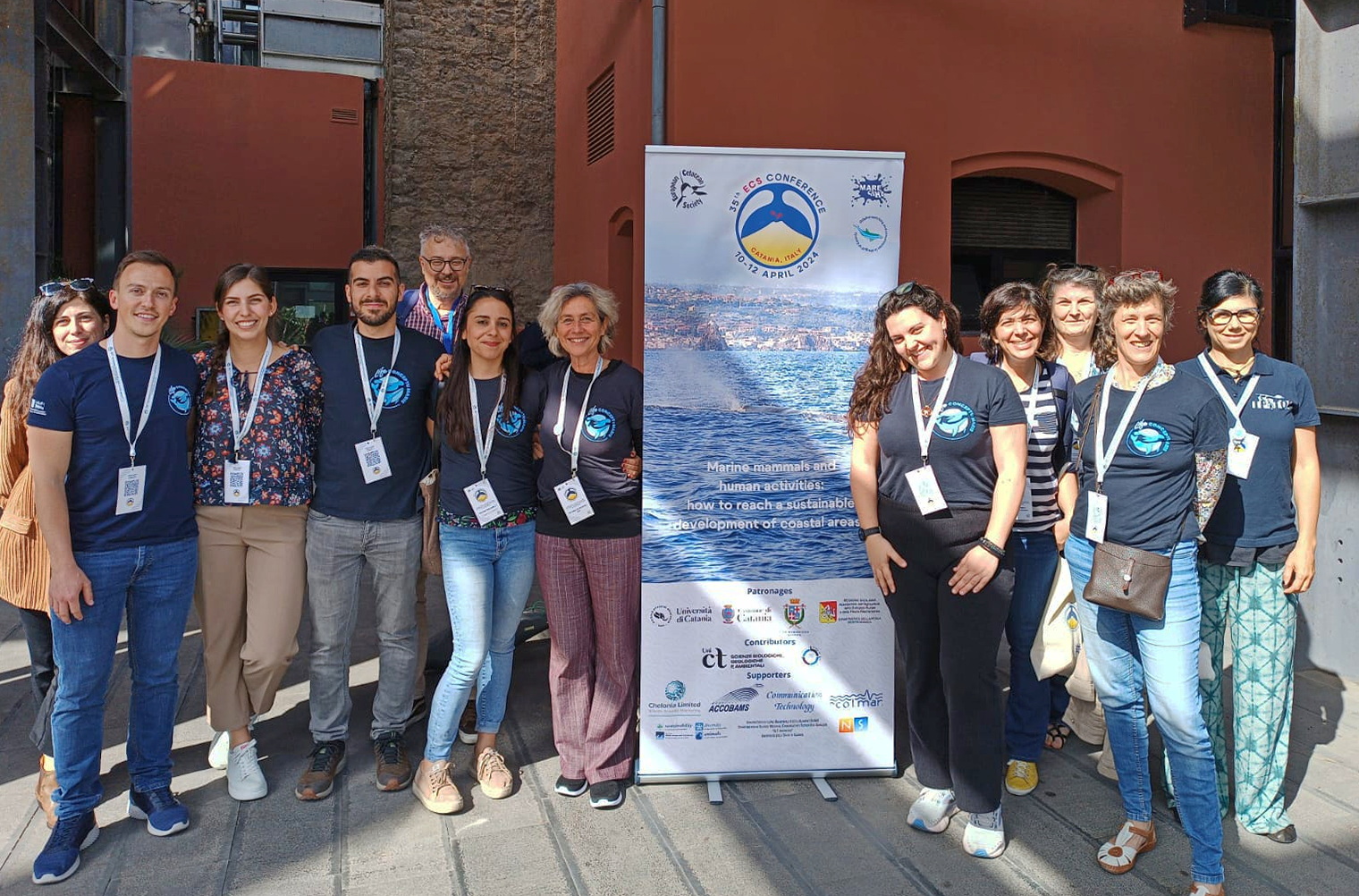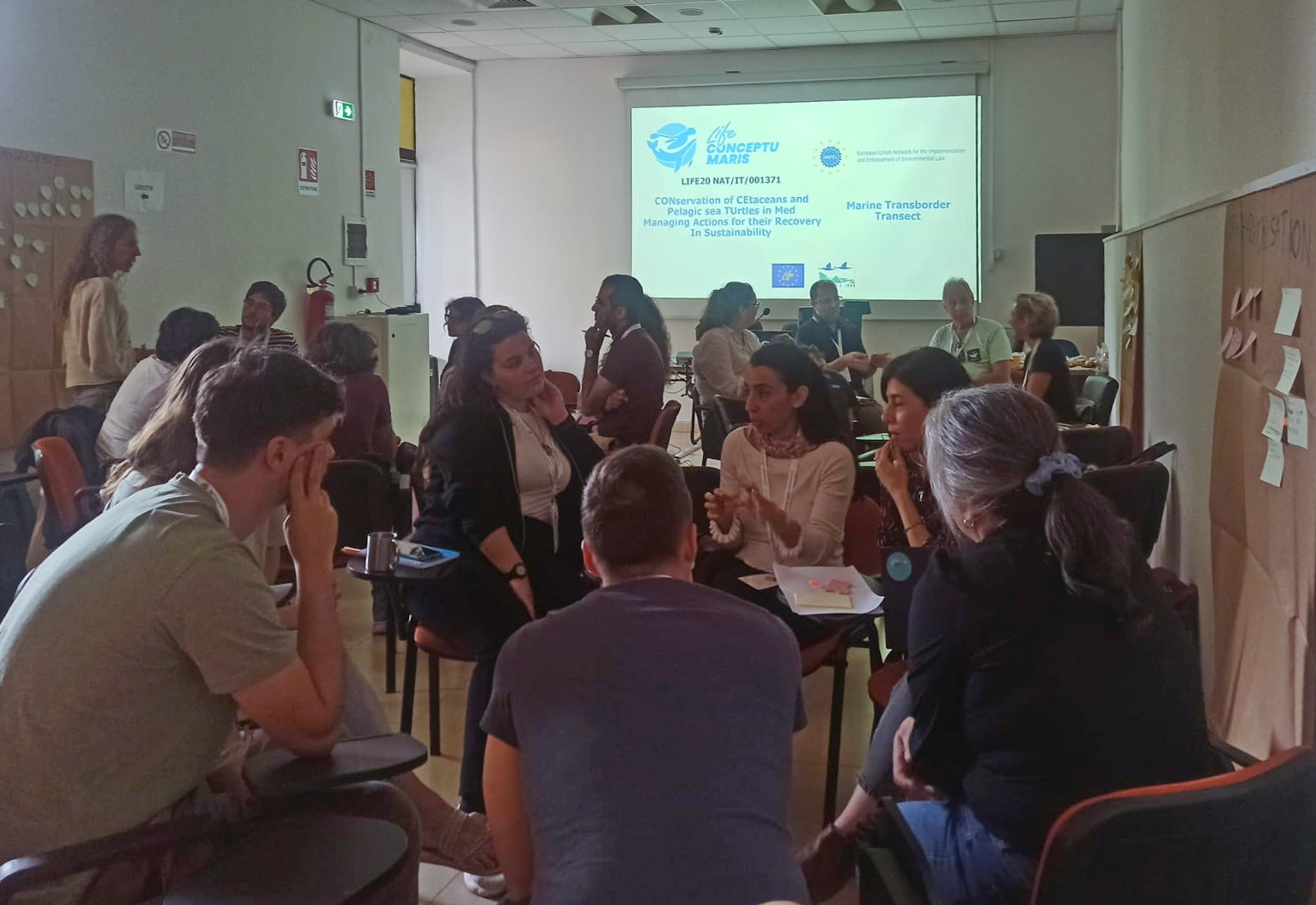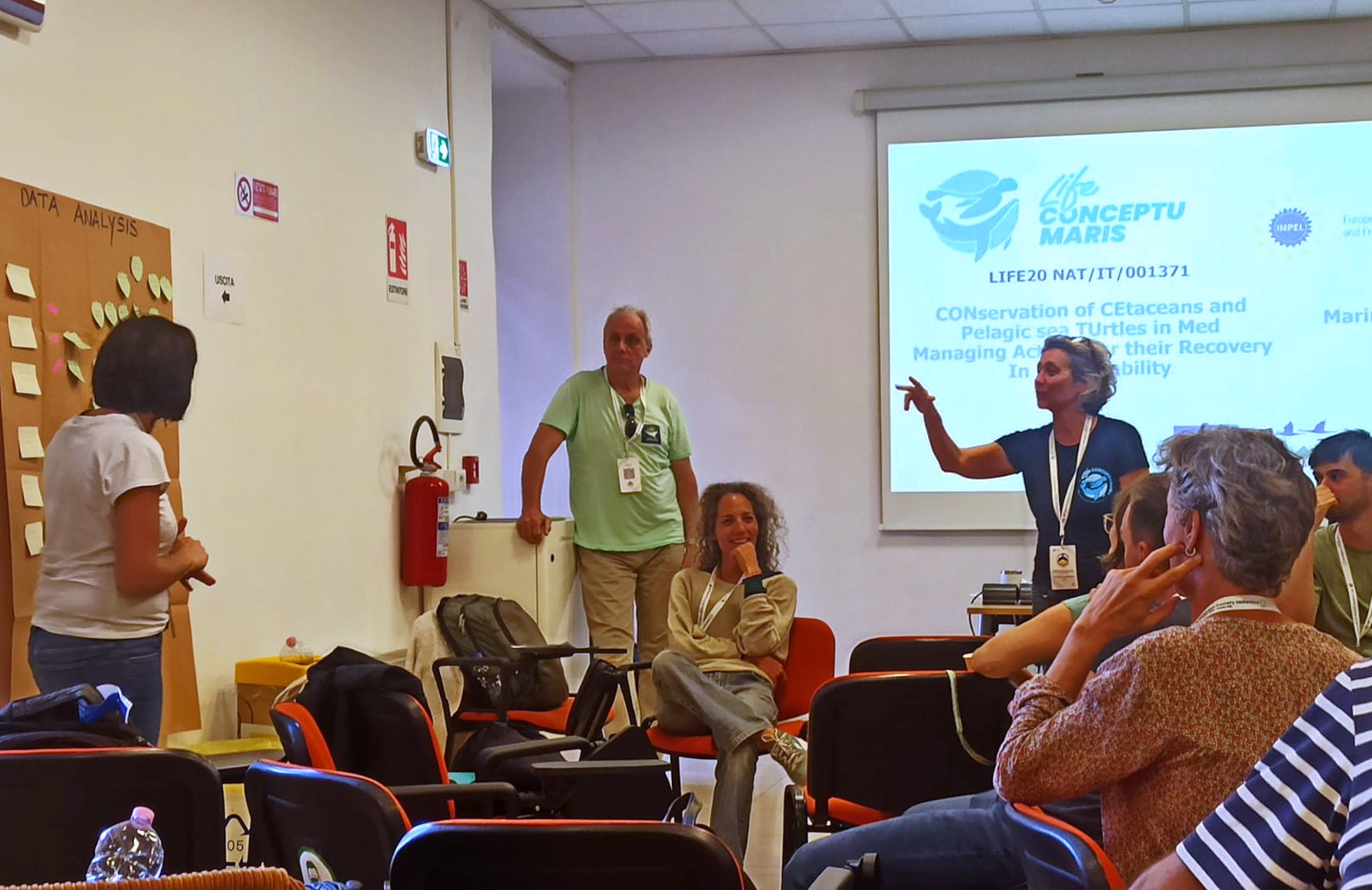Data to share
A first look at the results of the workshop organized at the European Cetacean Society
In more detail, the scientists who spoke focused on protocols and guidelines for the systematic monitoring of cetaceans using ferries. The main objective was to facilitate the sharing of expertise and promote collaboration to establish a unified protocol for visual investigations, the collection of data and samples, the formatting of databases where the collected information flows and their analysis, so that the results can be the basis for the development of a Decision Support System. This computerized tool will make it possible to identify conservation priorities for each species and, consequently, to support those who have the task of deciding how to protect the faunal and environmental heritage. In this way, the entire amount of data collected in different areas starting from 2022 will be able to speak a common language.
The workshop saw the participation of around thirty people, coming from 23 institutions in 10 countries. After an initial session reserved for project presentations, an interactive session followed in which the participants divided into groups to discuss the four phases of the research work: how to harmonize methodologies and tools for data collection; how to manage data; how to analyze them; how to translate information into priority policy measures and develop a Decision Support System, satisfying European legislative requirements.
The observations made will then feed into a common document, which will promote interoperability between the various databases in Europe.








